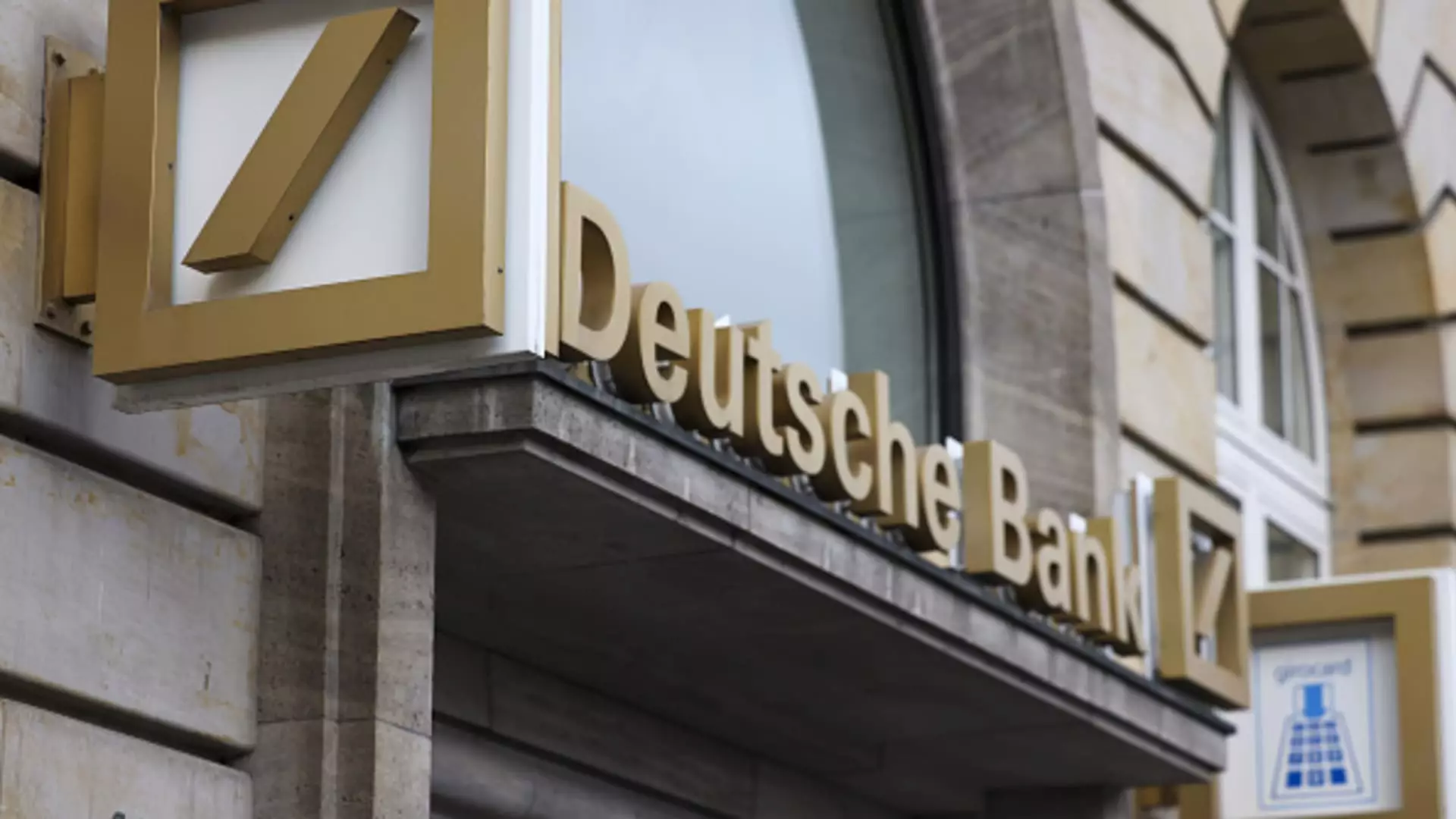Deutsche Bank has recently unveiled a remarkable financial performance that has exceeded analyst expectations. With a net profit of 1.775 billion euros ($2.019 billion) in the first quarter of this year, the bank experienced a staggering 39% year-over-year increase, firmly positioning itself as a beacon of resilience within the turbulent landscape of European banking. Analysts had anticipated a profit of approximately 1.64 billion euros, making the actual results that much more impressive. Such robust results reveal not only the strength of Deutsche Bank’s investment banking arm but also indicate a strategic approach to navigating economic uncertainties.
The investment banking sector, often considered the backbone of Deutsche Bank, has shown substantial growth, with net revenues soaring by 10% to a noteworthy 8.524 billion euros. This performance is underscored by an impressive contribution from the fixed income and currencies (FIC) unit, which saw a 17% year-on-year increase. In contrast, other segments, such as origination and advisory, reported a decline, indicating that while some areas are thriving, others require a recalibration of strategy to adapt to the shifting financial terrain.
CEO’s Vision and Strategic Commitments
Christian Sewing, the bank’s CEO, has articulated a clear vision for the future, suggesting that these results not only put Deutsche Bank on course to meet its 2025 targets but also mark the bank’s best quarterly profit in over a decade. This long-term outlook shows the leadership’s commitment to not just immediate gains but sustainable growth. The clarity of this mission reflects a shift in corporate ethos, favoring a more resilient and adaptable approach to future challenges.
The bank’s capital adequacy also remains robust, with a Common Equity Tier 1 (CET1) capital ratio stabilizing at 13.8%. This is a vital gauge of financial health, highlighting the institution’s capacity to absorb economic shocks and lending risks. While the bank allocated an increased provision for credit losses—471 million euros compared to 420 million euros in the previous quarter—the proactive stance taken by management in anticipating potential risks speaks to a culture that prioritizes prudence and preparedness amidst volatility.
A Complex Regulatory Environment
It’s imperative to contextualize Deutsche Bank’s successes against a backdrop of geopolitical instability and stringent regulatory pressures. The challenges posed by U.S. tariff policies strike at the heart of European financial markets, raising concerns over trade relations and their cascading effects. Deutsche Bank’s leadership recognizes these uncertainties, notably flagging that geopolitical factors and macroeconomic conditions have necessitated both caution and adaptability in financial forecasting.
As tariffs threaten to instigate a trade war, Deutsche Bank is effectively hedging its risks, particularly regarding interest rates, which are pivotal for financial institutions. James von Moltke, the bank’s CFO, emphasized the careful calibration of risk exposure, pointing out that much of the bank’s interest rate risk for 2025 is already addressed. This is a critical tactical maneuver that allows the bank to retain a competitive edge even as external pressures rise.
Market Confidence and M&A Potential
A positive sentiment is also brewing within the broader German political landscape, likely contributing to investors’ renewed confidence. With a centrists’ coalition gaining ground, led by Friedrich Merz of the Christian Democratic Union, expectations of economic stability are rising. Such a shift not only stabilizes the political atmosphere but also promises stronger investment in the German economy’s recovery and growth trajectories. This shift complements Deutsche Bank’s own growth narrative, as the bank is optimistically poised to leverage burgeoning opportunities in credit trading and mergers and acquisitions.
Moreover, the importance of the American market cannot be overstated. With operations in the U.S. constituting a significant portion—approximately 20%—of Deutsche Bank’s business, the interplay of growth expectations and ongoing negotiations around tariffs will be pivotal moving forward. The impending adjustments in U.S. tariffs could create both challenges and openings for Deutsche Bank’s expansion in American markets, particularly in credit and corporate finance sectors, which are expected to flourish if strategic opportunities are correctly identified and pursued.
Deutsche Bank’s recent financial success amid a tapestry of uncertainties exemplifies resilience and strategic foresight. As it navigates the challenges posed by geopolitical volatility and seeks to capitalize on emerging opportunities in both European and American markets, the commitment to careful risk management and sustainable growth will likely fortify its position within the competitive banking sector. One thing is certain: Deutsche Bank’s proactive stance reflects a dynamic approach to fostering long-term value while addressing immediate and unforeseen challenges.

